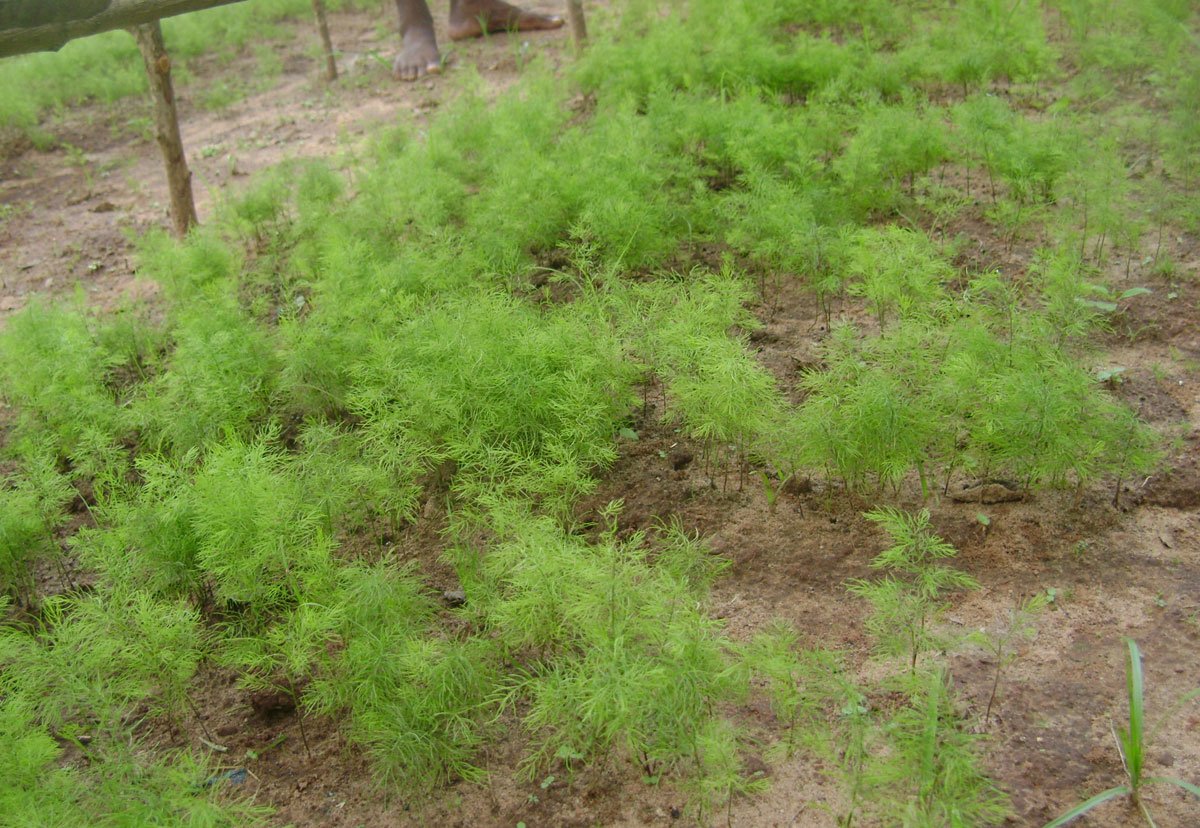Nepali Shatavari
Product information
Scientific Name: Asparagus racemosus
Seed Shape: Spherical
Seed Size: 0.2 cm radius
Seed Color: Black
Usage: Germination (not for oil extraction)
Age: Fresh (less than a year, good for germination)
Origin: India
Seedling Height: 9” - 12” or above
Number of root fingers: 3 to 4
Packing of seeds: Plastic bag
Packing of seedlings: Naked root plant in plastic net bag
Availability: Throughout the year
General Details
Botanical Name: Asparagus racemosus
English Name: Asparagus, Buttermilk root, Climbing Asparagus, Wild Asparagus
Hindi Name: Satawar, Ghatwal, Satamuli, Shatavari
Family: Liliaceae
Propagation: By seeds/ seedlings
Medicinal Properties
Root: Nutritive tonic, Rejuvenative, Aphrodisiac, Laxative, Refrigerant, Demulcent, Diuretic, Anti-spasmodic, Anti-dysenteric, Antacid, Anti-tumor and Galactagogue.
General characteristics
Nepali Satavar, a tuberous herb with straight and hooked spines, is a species of asparagus common throughout Sri Lanka, India and the Himalayas of Nepal. It grows 1-2 m tall and prefers to take root in gravelly, rocky soils high up in piedmont plains at 1300-1400 m elevation.
Its tubers are white, radish shaped, and found in clusters, and its branches are modified into a leafy structure. In fact, the entire plant has a feathery appearance. The stem is woody and dark green, the flowers are fragrant, small and white, and the fruits are fleshy red berries that turn purplish black when ripe.
Medicinal Uses
The name Shatavari means curer of a hundred diseases(shat: hundred; vari: curer). Due to its multiple uses, the demand for Nepali Satavar is constantly on the rise. It is recommended in Ayurvedic texts for the prevention and treatment of gastric ulcers, dyspepsia and as a galactogogue. It has also been used by some Ayurvedic practitioners for nervous disorders.
Shatavari helps in treating for infertility, irregularities in ovulation, PMS symptoms such as those excessive bleeding, cramps, pain, bloating, menopausal and other post menopausal symptoms, reduced breast milk secretion in the nursing women, Lmenorrhea, Dysmenorrhea, Leucorrhea and pelvic inflammatory diseases, Decrease in the libido and many other diseases. It improves sperm quality, improves sperm and semen health and sperm mobility.





 Keen to Serve Our Best on Your Farm
Keen to Serve Our Best on Your Farm








